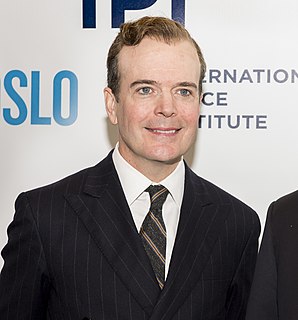A Quote by Cristina Henriquez
I feel like elements of race and identity and ethnicity are sort of missing in all of literature, not just in women's literature.
Related Quotes
I think so much of young adult literature sort of gets ghettoized - the title 'young adult' makes people immediately discount it. And just like with books that get written for adults, there is plenty of young adult literature that is bad. But there is also plenty of young adult literature that is brilliant.
I got to college in '99, and I went to study literature and writing, and so within a couple years we had Bush elected, 9/11, we were at war, so I was sort of having my political and spiritual awakening at the same time I was becoming an adult, and that's a lot of stuff at once. I became very focused on the state of the world, and I started studying that stuff more, and I just had a real identity crisis. I couldn't even really just study literature.
English is, from my point of view as an Americanist, an ethnicity. And English literature should be studied in Comparative Literature. And American literature should be a discipline, certainly growing from England and France, Germany, Spain, Denmark, and the Native traditions, particularly because those helped form the American canon. Those are our backgrounds. And then we'd be doing it the way it ought to be done. And someday I hope that it will be.
Most British playwrights of my generation, as well as younger folks, apparently feel somewhat obliged to Russian literature - and not only those writing for theatres. Russian literature is part of the basic background knowledge for any writer. So there is nothing exceptional in the interest I had towards Russian literature and theatre. Frankly, I couldn't image what a culture would be like without sympathy towards Russian literature and Russia, whether we'd be talking about drama or Djagilev.
I don't think that we are completely dominated by what we have inherited from the past, but it is the case that as far back as you can go - just to Homer, but also to the literature of Rome, the literature of the Middle Ages and Renaissance - what you will find is that women's voices are not taken seriously.
Literature cannot develop between the categories "permitted"—"not permitted"—"this you can and that you can't." Literature that is not the air of its contemporary society, that dares not warn in time against threatening moral and social dangers, such literature does not deserve the name of literature; it is only a facade. Such literature loses the confidence of its own people, and its published works are used as waste paper instead of being read. -Letter to the Fourth National Congress of Soviet Writers
Obviously, everything has always been defined by the dominant ideology. But the dominant ideology has been able to accept women's literature as well as men's literature. I would say that women have been hindered from creating for a variety of reasons, as Virginia Woolf so admirably explained in A Room of One's Own. When they have created, on the whole they have been recognized. In literature it hasn't been nearly as oppressive as in, say, painting, where even the existence of so many women painters has always been denied.



































